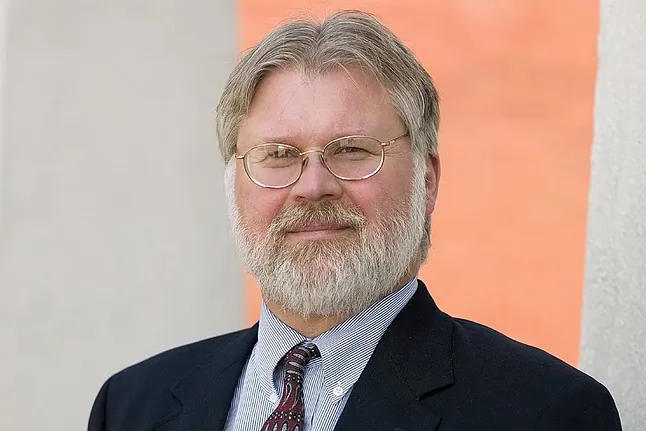Immigration is a central issue in contemporary societies, both developed and developing. It is more than an economic, geographical, sociological, or cultural phenomenon. It is more than a geopolitical issue. Migration crises, or rather the political crises generated by migratory flows, explain the most aggressive and polarized debates, the outcomes of elections that overthrow governments, the rise of radical movements, and the wild shift in perspective, in a few years, in Europe, the US, or Australia. Nothing can be understood without immigration, its causes, the rejection, and the changes it provokes, making it more important than ever to understand it well, both quantitatively and qualitatively.
Hence, sociologist and demographer Douglas Steven Massey, an international reference in migration sociology, professor at the Princeton School of Public and International Affairs and the University of Pennsylvania, was awarded the Princess of Asturias Award for Social Sciences 2025 on Wednesday, a highly symbolic recognition of his long career as an analyst of migratory movements, especially in the United States and Latin America. Especially now that they are being criminalized to an unprecedented level.
The jury has acknowledged his "multidisciplinary approach" and his "significant contributions in areas such as international migration and social stratification." His work is essential, according to specialists, to understand the dynamics of a critical phenomenon, "combining academic rigor with an accessible approach that has influenced both the academic field and public policy formulation." To dismantle fallacies and build a challenging discussion, but at least based on data.
Massey (Olympia, 1952) graduated in Sociology, Psychology, and Spanish from Western Washington University in 1974 and obtained his doctorate from Princeton, where he is the Henry G. Bryant Professor of Sociology and Public Affairs. "I am honored and proud to be in the company of those who have been distinguished with this award in the past. I wish to express my deep gratitude to the members of the award jury, to Her Royal Highness Princess Leonor of Bourbon and Ortiz, to the people of Oviedo, and to the Spanish nation for this magnificent and noble recognition," he said in a statement.
Among his most influential publications are American Apartheid: Segregation and the Making of the Underclass (1993), co-written with Nancy A. Denton, which analyzes racial segregation in the United States, and Beyond Smoke and Mirrors: Mexican Immigration in an Era of Economic Integration. "He has been a pioneer and gained much recognition with the method of ethno-surveys, identifying a series of communities and closely monitoring them over time, a household census that allowed for an unprecedented understanding of the determinants of departure, return, repeated immigration, and the impact of changes in US policy on emigration rates from Mexico. A very costly, expensive, and complicated methodology, known as life history surveys that still provide invaluable information decades later," explains Amparo González Ferrer, a researcher at CSIC who was his student and has used his methods in research for the Senegalese community in Spain.
Massey's work, author or co-author of many of the leading papers in his field, serves, for example, to understand that the massive increase in border surveillance, as in the US since the mid-1980s, has not reduced the total undocumented population. On the contrary. Borders, walls, even immigration reforms that have become "political symbols," powerful weapons for vote capture, have caused the opposite of what they intended. "Empirical results show that border surveillance as a migration control policy not only failed but was counterproductive. Ultimately, border militarization did not increase the likelihood of apprehension at the border or reduce the likelihood of unauthorized entry; but it did drastically alter the geography of border crossing, increase the costs of undocumented migration, and raise physical risks. Ironically, these trends did not affect the likelihood of undocumented entry into the United States but reduced the likelihood of undocumented return to Mexico, increasing the net volume of undocumented migration and accelerating the growth of the undocumented population," he explains in one of his lectures.
Massey is not isolated in the academic world. On the contrary. In 2005, he published Return of the "L" Word: A Liberal Vision for the New Century, a book defending progressive policies and advocating for markets that serve the public interest. And since 2017, he has become one of the fiercest critics of Trump, "white nationalism," immigration policies, and mass deportations, which are "cruel, unjust, and an economic suicide."
Last November, just after the elections, he wrote that "Trump's campaign was openly racist, xenophobic, and authoritarian, and his supporters seem willing to abandon democracy in support of an autocratic demagogue who promises to fix everything while stoking their anger, resentment, and prejudices." And he warned that "once in power, with a Congress and a judiciary controlled by Republicans, Trump will rule despotically as a populist, relying on his uninformed and increasingly delusional understanding of the nation and its challenges, wreaking havoc on the American political economy and global political order."
